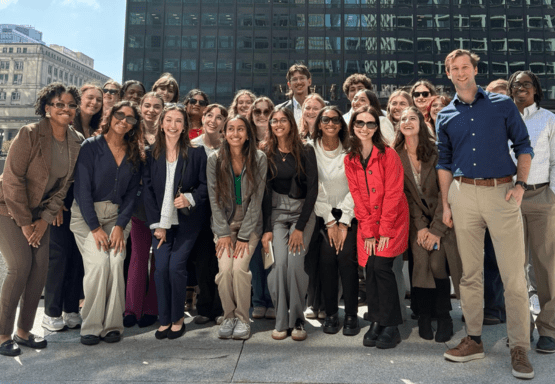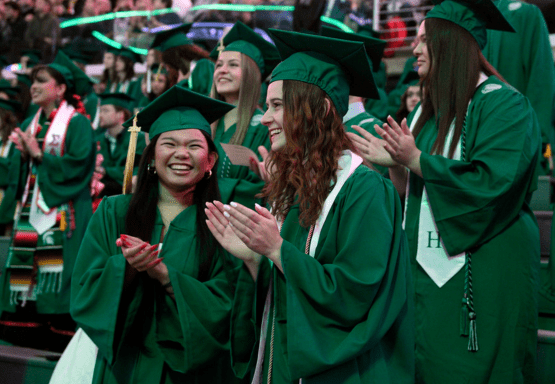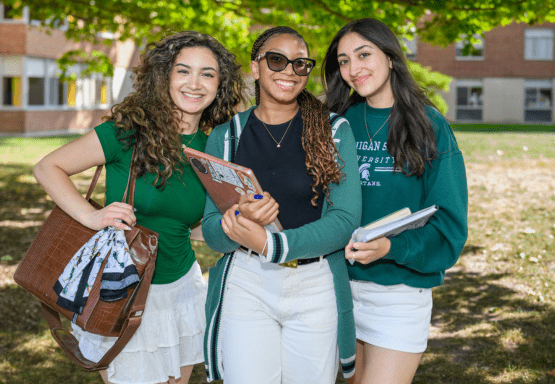Molly Hall graduated from JMC with a degree in international relations in 2012. Upon graduation, Hall worked in Lansing as a staffer in the Michigan Legislature and then pursued work in Washington D.C. in public affairs for six years. In 2020, Hall made the decision to return to her studies and is in her first year pursuing a master’s in public policy at the Willy Brandt School of Public Policy at the University of Erfurt in Erfurt, Germany.
Why did you choose Michigan State and, specifically, why James Madison?
My interest in international affairs started at a young age when I lived in Munich, Germany with my family, so the IR degree was my obvious option. I toured several schools, including some of the top ranked ones in Washington, D.C. But nothing could compare with the individualized welcome and sense of home I felt at JMC and at MSU.
I still remember that when I first visited JMC, how Assistant Dean Jeffrey Judge took unscheduled time out of his day to speak with me and advise me on how I could make the most out of JMC and MSU. It was this personal touch that made me realize I would have such individualized attention throughout my studies and that MSU offered an unbeatable education.
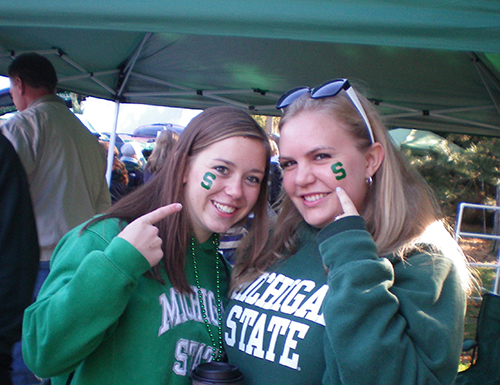
As you prepared to graduate from MSU, what career path did you see yourself pursuing and how did it compare to the work you pursued post-graduation?
I had always envisioned myself working directly in international affairs, for the U.S. government or a non-government organization like NATO. And I remember professors and advisers always telling us that a JMC education will prepare you to succeed wherever you end up. Which is why when I was presented with the opportunity to continue from my internship in the State Senate into a full-time staffer position, I happily accepted. That all said, though, it has been the writing skills that I honed at JMC that have helped me succeed the most post-graduation. From working in legislative affairs to public affairs and public relations, my writing skills have allowed me to succeed in various work environments.

You worked for nearly a decade before returning to the classroom as a full-time graduate student. What has that experience been like?
In one word: surprising. The biggest doubt I faced when starting on this journey was if I could still “do academia”: Do I remember how to study? How to research? How to manage long-term deadlines? At every turn I have been surprised at how quickly the skills I gained during my time at JMC have come back to me and have truly prepared me for success in the program (so far).
In addition, I have been able to take the skills I gained from working in “corporate America” to enrich my studies. For example, my experience managing fellow team members at work has been invaluable for creating collaborative group projects in my master’s. In addition, my public affairs experience, impacting policymaking in the U.S., provides me with endless examples to contribute to class discussions. It certainly has been a challenge moving from an 8 a.m.-6 p.m. job to the life of a fulltime student but, so far, it has also been thoroughly rewarding.
How did your education in JMC prepare you for what you are doing now?
JMC gave me the foundations I needed to grow and pursue the opportunities that interest me. Beyond the exemplary writing skills that the program truly hones, JMC instilled a perpetual curiosity and need to question in me. My curiosity and willingness to question the status quo served me well in my previous positions, but even more so has prepared me for my current MPP program. The Willy Brandt MPP program has an emphasis on research-based education, including a 25,000-word original research thesis required to graduate. Without the healthy skepticism that JMC instilled in me, I would not be as well positioned to succeed in my current program.
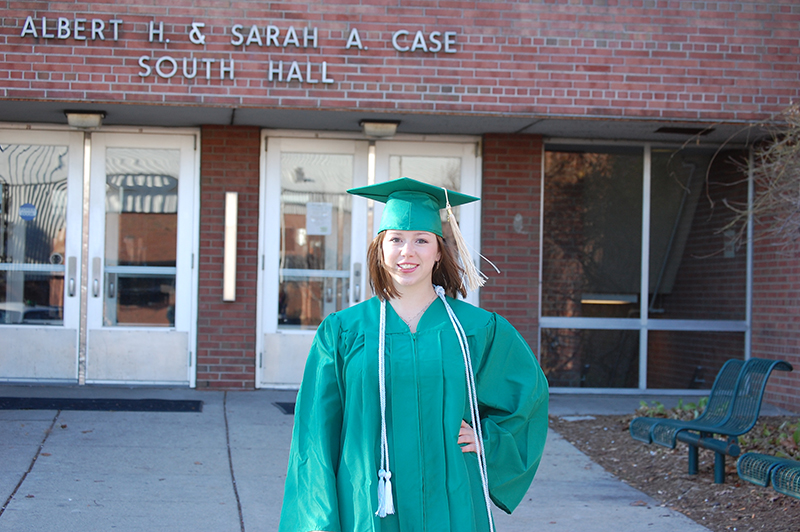
What were your education abroad experiences prior to this one? And tell us a bit about choosing an international program versus a domestic one.
Surprisingly enough, I did not study abroad prior to my current program. As a young kid, I did attend elementary school for a few years in Germany, but it does not compare with studying abroad as an adult. However, after six years in Washington, D.C. and facing the question of “What’s next?,” while in the middle of a pandemic, I realized that it was time to pursue my master’s.
With an MPP as my end goal, I reviewed the amazing programs in the U.S., including those in D.C. But the price of those programs was unattainable for me. Also knowing that I wanted to move abroad and experience something different, I began looking for an international program. Balancing program affordability with quality and an interesting locale is not an easy feat, yet when I found the Willy Brandt School (WBS) MPP, I immediately knew it was top of my list. WBS offers a fully accredited, English language MPP that attracts students from all over the globe.
Students focus their education in two of four specializations, gain practical experience through a mandated internship and project group working on a real public policy problem, and gain the skills needed to advance policy objectives around the globe. On top of this, WBS is highly affordable with scholarships readily available, and gives its students a chance to live and learn in Germany.
In what ways does your current program position you for your next career move?Beyond the educational experiences I’m getting from WBS, I’m building my network with relationships with policy practitioners from all over the world. The professors at WBS also retain top-notch relationships with leading international think tanks and organizations, which is helpful for gaining internships or post-graduation experiences. For me, I am specializing my policy knowledge within the realm of cybersecurity and national security to help me transition from public affairs and communications into a policy analysis position either with a consultancy, think tank, or the U.S. government.
What advice would you offer current JMC students who want to pursue a career in public policy?
The best advice that I can give is to chase the opportunities you want, but don’t ignore the opportunities that might appear instead. My experience has shown me that being nice, willing to learn, and working hard will open the right doors for you. It might not be the path you expected, but it will get you to where you want to be. More specifically, you don’t have to intern or work on the Hill or at a think tank to impact public policy. Other careers, such as communications or consulting, can still lead you to work in public policy. And lastly, don’t compare yourself to where others are – the right path for you might not be the right path for others and vice versa.
Anything else you’d like to add?
GO GREEN! And if anyone is interested in learning more about the WBS MPP, please contact me at mollyhall.pr@gmail.com. Applications are currently open for the MPP and international students must apply before April 30.
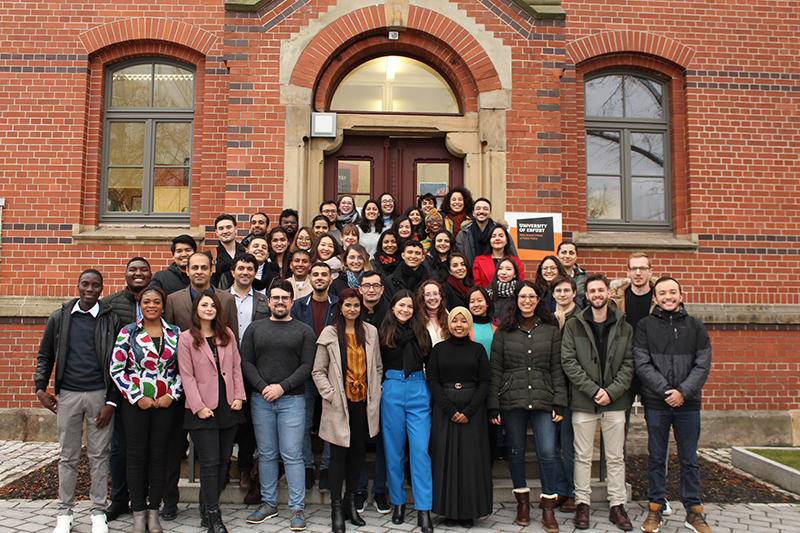
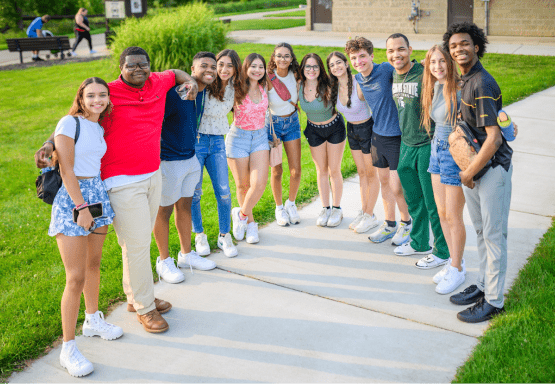
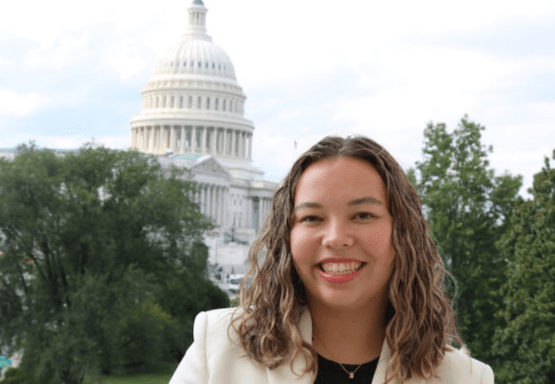
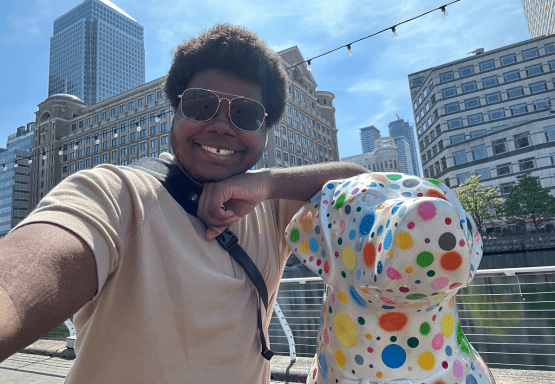
.png?h=384&iar=0&w=555)
